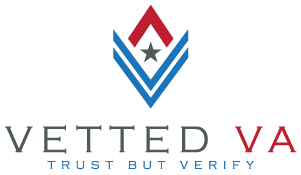Why VA Appraisal Problems Usually Come from Misinformation
Most issues that come up during a VA home loan stem from misinformation, not the program itself.
Some agents or lenders avoid VA offers because they’ve “heard” appraisals take longer or always require extensive repairs. In truth, those challenges often reflect a lack of VA experience, not actual VA policy.
The VA loan program is unique — it’s the only true zero-down program available today for eligible veterans and service members. It allows qualified buyers to purchase a home with no down payment, possibly receive a lender credit, and still have cash left in the bank.
When handled by an informed lender or real estate professional — especially one trained through Vetted VA — the process is smooth, transparent, and often faster than expected.
Reference: VA Lender’s Handbook (VA Pamphlet 26-7), Chapter 12 – Appraisal Process and Minimum Property Requirements.
Understanding Minimum Property Requirements (MPRs)
Every VA appraisal checks whether a home meets the Minimum Property Requirements (MPRs) — safety, sanitation, and structural soundness.
Think of it this way: the VA just wants to make sure the home won’t harm the veteran or their family. That means no exposed wiring, active roof leaks, or unsafe stairways.
It’s not about perfection — it’s about protection.
If the appraiser identifies issues that affect livability or safety, repairs may be required before closing. These requirements are similar to FHA loan standards, but VA guidelines often provide more flexibility for veterans.
Reference: VA Handbook, Chapter 12, Section 3 – Minimum Property Requirements.
Repairs, Escrow Options, and Creative Solutions
When an appraisal identifies repairs, sellers sometimes panic — but they don’t need to.
There are several ways to handle necessary repairs:
-
Repairs before closing: The seller or buyer can fix the issues directly.
-
Escrow holdback: Funds are set aside to complete repairs after closing.
-
Lender or agent assistance: In some cases, minor repairs can be handled creatively or through professional goodwill to meet MPRs.
Some dedicated agents have even rolled up their sleeves to paint or fix a window themselves — just to help a veteran close on their home.
At the end of the day, it’s all about ensuring a safe, sound home for the veteran.
Appraisal Contingency Plans and Timelines
Every state and county handles appraisal timelines differently, but VA appraisals follow a standardized national process.
Unlike conventional loans — where the lender orders the appraisal directly — the VA assigns the appraiser and tracks timelines to ensure accountability.
That means appraisals are monitored by the VA to help prevent delays, which actually makes the process more predictable, not less.
So when listing agents hesitate to accept VA offers because of “appraisal timing,” they’re usually reacting to outdated assumptions — not current reality.
The Truth About Tidewater and Appraisal Gaps
When a VA appraisal comes in below the contract price, it doesn’t automatically mean the deal is lost.
The VA has a process called Tidewater, which gives agents and lenders the opportunity to submit additional comparable sales (comps) before the final value is issued.
Here’s how it works:
-
The appraiser notifies the lender that they cannot support the contract price.
-
The lender alerts the agent that Tidewater has been invoked.
-
The agent then has 48 hours to provide additional comps supporting the sales price.
-
The appraiser reviews the comps and finalizes the report.
This proactive process helps ensure the final valuation reflects real, current market data.
Reference: VA Handbook, Chapter 13 – Reconsideration of Value Procedures.
Reconsideration of Value (ROV)
If the final appraisal still comes in low after Tidewater, the agent or lender can submit a Reconsideration of Value (ROV) request.
An ROV is a formal appeal that presents updated comps, neighborhood data, or written reasoning for why the home’s value should be higher. It can be done in two ways:
-
A detailed list of comparable sales with adjustments (most effective).
-
A narrative explanation describing features that may have been overlooked, like location or lot size.
Once submitted, VA staff typically review and respond within about a week.
This process shows just how much effort VA lenders and agents make to ensure veterans receive fair valuations — and it often succeeds when handled professionally.
Key Takeaways
-
Most VA loan “issues” come from misunderstanding, not difficulty.
-
VA appraisals protect veterans, ensuring homes are safe and sound.
-
Repairs can often be escrowed or completed post-closing.
-
Tidewater and ROV processes give buyers a chance to defend fair value.
-
Vetted VA professionals understand these nuances and guide both agents and buyers through them confidently.
Where to Get Trusted Help
If you’re a veteran, agent, or lender navigating VA appraisal questions, connect with a Vetted VA professional. These experts know the rules, the timelines, and how to help veterans succeed — even in challenging markets.
Visit Vetted VA to find a verified professional in your state.





